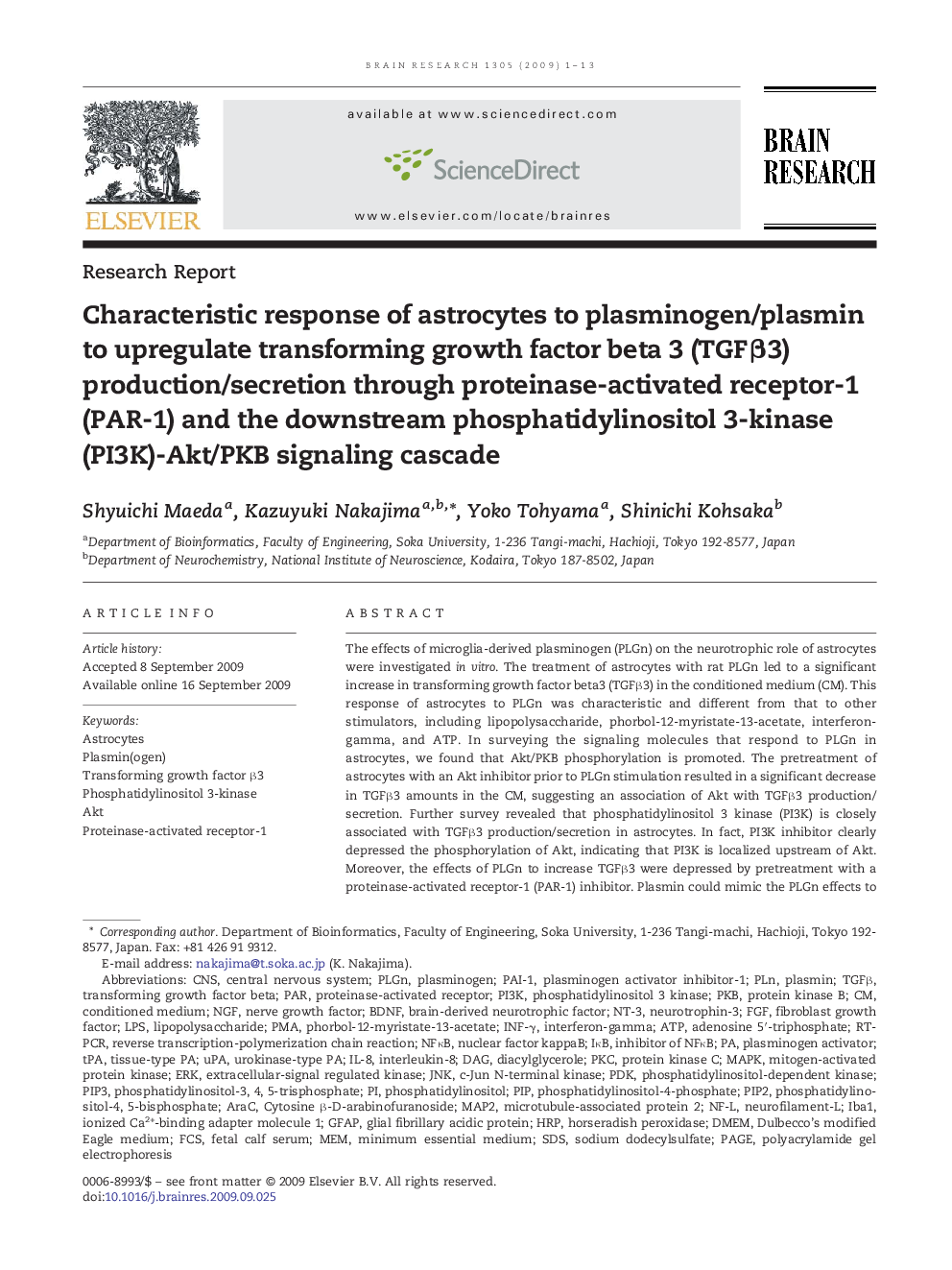| Article ID | Journal | Published Year | Pages | File Type |
|---|---|---|---|---|
| 4327658 | Brain Research | 2009 | 13 Pages |
The effects of microglia-derived plasminogen (PLGn) on the neurotrophic role of astrocytes were investigated in vitro. The treatment of astrocytes with rat PLGn led to a significant increase in transforming growth factor beta3 (TGFβ3) in the conditioned medium (CM). This response of astrocytes to PLGn was characteristic and different from that to other stimulators, including lipopolysaccharide, phorbol-12-myristate-13-acetate, interferon-gamma, and ATP. In surveying the signaling molecules that respond to PLGn in astrocytes, we found that Akt/PKB phosphorylation is promoted. The pretreatment of astrocytes with an Akt inhibitor prior to PLGn stimulation resulted in a significant decrease in TGFβ3 amounts in the CM, suggesting an association of Akt with TGFβ3 production/secretion. Further survey revealed that phosphatidylinositol 3 kinase (PI3K) is closely associated with TGFβ3 production/secretion in astrocytes. In fact, PI3K inhibitor clearly depressed the phosphorylation of Akt, indicating that PI3K is localized upstream of Akt. Moreover, the effects of PLGn to increase TGFβ3 were depressed by pretreatment with a proteinase-activated receptor-1 (PAR-1) inhibitor. Plasmin could mimic the PLGn effects to upregulate TGFβ3, and the plasmin effects were suppressed by pretreatment with the PAR-1 inhibitor, suggesting the association of PLGn/plasmin effects with PAR-1. In addition, Akt phosphorylation caused by plasmin was inhibited in the presence of PAR-1 inhibitor. We have therefore demonstrated that PLGn/plasmin, probably plasmin, facilitates the production/secretion of TGFβ3 in astrocytes through both PAR-1 and the subsequent signaling cascade including PI3K and Akt.
